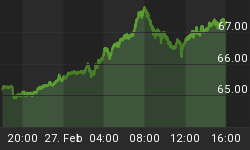Late last summer our Similar Markets Model (SMM) identified 1998 as a market with similar technical characteristics. As it turns out, 1998 was an excellent road map for the last eight months. What is the SMM saying now?
Below is a summary table of the similar markets study described below. We found eighty-one weekly cases with similar historical profiles to the present market. Looking out eight to twelve months, in 89%-91% of the historical cases, the S&P was higher with an average gain between 10.38% (eight months) and 24.57% (twelve months). The risk-reward ratios were favorable looking out on all time horizons, but especially so between three and twelve months.

The SMM compares current daily, weekly, and monthly 80-20 Correction Index values with historical values. The model also identifies periods with similar Bull Market Sustainability Index (BMSI) readings. We ran the model early this morning. The results lean toward favorable outcomes over the next 12 to 36 months.
The periods that were most frequent in terms of similarity to the present day clustered in 1991-1993 and 2004-2006. As shown below, both periods offered very favorable long-term results for investors.

We are collecting data for all the periods identified in order to calculate risk-reward ratios for markets similar to what we have today. We will post the results when they are available on Short Takes.

It should be noted that mid-October 1987 was identified as one of the similar periods. The '87 crash began on October 5 with a bottom coming on October 19. From a longer-term perspective, October 19 was a good day to invest, but October 5 was a terrible day to commit new capital.
If the situation in Europe can resolve itself in a somewhat orderly manner, it is reasonable to believe in a more favorable environment since Europe has been a drag on the markets for over two years. If the situation in Europe unravels again, it is very difficult to envision bullish outcomes.















